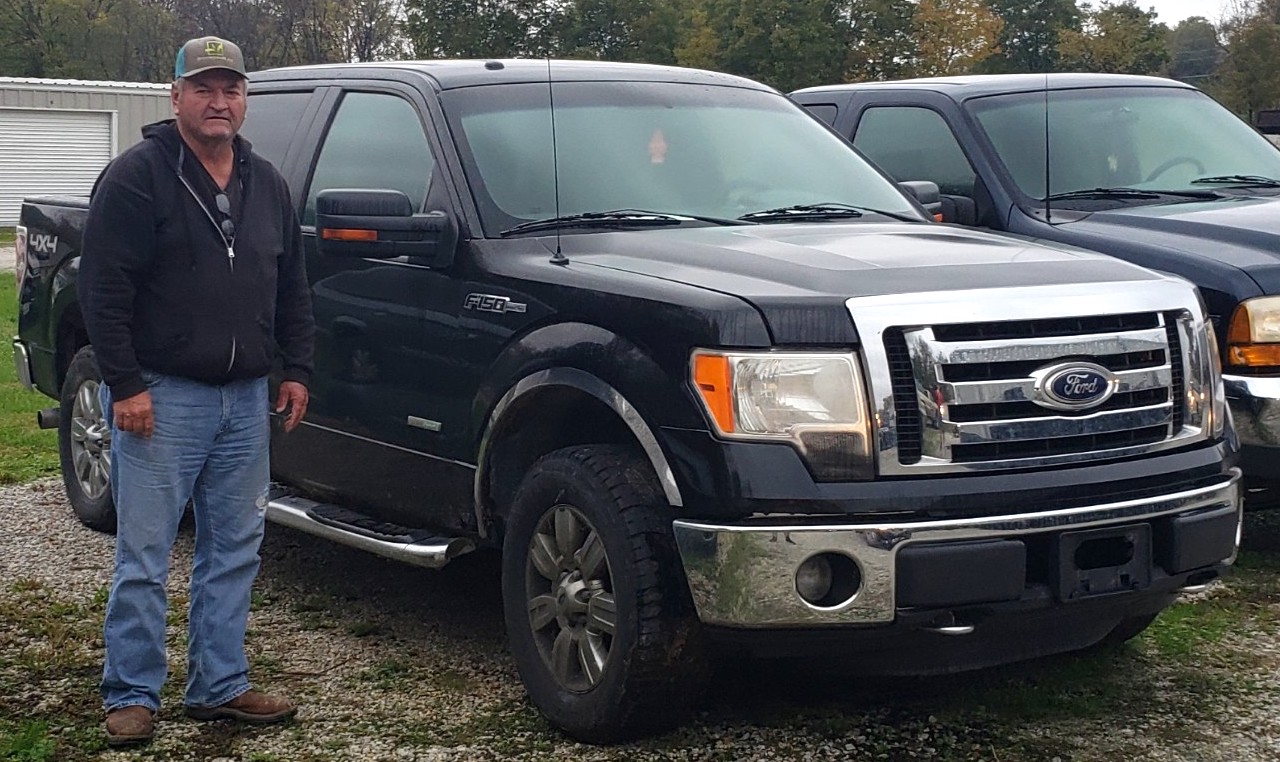‘Those guys are shady’: BBB study shows complaints about vehicle service contracts industry are on rise

BARRY, Ill. – Dave Forshey bought a vehicle service contract with St. Louis-based CarShield in June 2020 to cover any problems with the motor, engine and transmission in his 2011 Ford F150.
“I told them my truck had more than 289,000 miles on it,” he said. “I really didn’t think they’d take (the policy). That’s a lot of miles.”
Forshey bought the policy for $133.77 a month.
“The only thing I had to do was keep track of my maintenance on (the truck), so if something did happen, I can show proof that I was keeping it maintained,” he said.
Now, a little more than a year later, Forshey regrets that purchase.
“Those guys are shady,” he said. “I mean, shady.”
Complaints about vehicle service contracts triple in St. Louis region from 2018 to 2020
Complaints against the vehicle service contract industry are on the rise, according to a recent study by the Better Business Bureau. The BBB warns consumers to be cautious when buying a vehicle service contract.
The in-depth investigative study, titled “Vehicle Service Contract Industry: BBB Study Reveals How This Complex Business Model Leads to Consumer Complaints When Marketers’ Promises Giveth and Administrators Taketh Away,” details the history of vehicle service contracts in the St. Louis region, the difference between a VSC and a warranty, and the problems consumers report having with the product. Read the full study here.
BBB of Eastern & Southwest Missouri & Southern Illinois processed more than 15,000 complaints against VSC companies in its service area between 2000 and 2020. From 2018 to 2020, Complaints filed against vehicle service contract companies in the St. Louis region nearly tripled in the past three years, going from 544 in 2018 to 1,402 in 2020.
Forshey told the BBB the timing chain in his truck went out on April 11 this year. His truck had 321,000 miles.
“I called (CarShield), and they said, ‘Send us your service records and stuff like that for the last year,” Forshey said. “In a 12-month period, I’d had the oil changed seven times. I’m really particular about changing the oil every 3,000 miles. To get 321,000 miles on a vehicle, you have to take care of it, right?”
Forshey said he wasn’t present when a CarShield representative looked at his truck at Gates Automotive in Barry.
“That will never happen again,” he said. “Basically, all he did was pop the hood, take some pictures and pull the dipstick out of the oil chamber. They never put it on a hoist … they never crawled under it. They just looked at it from the top.”
CarShield denied Forshey claim because of lack of maintenance
Forshey said he received a letter from American Auto Shield, the claim administrator for CarShield, saying it would not authorize his claim due to sludge found on the oil dipstick and oil filler neck. They also claimed to review Forshey’s service records and reported that each time he brought his vehicle in for an oil change, the oil level was low.
“Due to those findings, your claim was denied for lack of proper fluids or lubricants,” the letter read.
“I talked to four different mechanics and an auto parts guy who said you never wipe the oil off at the top (of the dipstick),” Forshey said. “The oil had nothing to do with (the timing chain going out).”
After Forshey contacted the Better Business Bureau and the Missouri Attorney General, another letter from CarShield noted Forshey’s truck had an oil leak.
“There’s never an oil leak in it, because the guys who have changed my oil said if there had been an oil leak, we would have put it in the notes,” Forshey said. “There was nothing wrong with your vehicle.”
Forshey claims he received an offer of “500 some-odd dollars” to “call it good,” but he refused.
“So I’m about to cancel my policy, and they sent me a check for $399,” he said. “I called (CarShield) and made sure that check was not a settlement but just a policy refund. They said yes. So when I cashed the check, I wrote on the front that it was not a policy refund, not a settlement.
“A couple months later, I get another letter from them stating I had settled for 500 some odd dollars, even though the check was only for $399. It was just one lie after another.”
Forshey wants CarShield to provide new motor or good used motor
The most recent letter he received from CarShield noted the truck might have been flooded because of a musty smell, and the truck body had a dent near a back rear tire.
“I only wanted them to insure my motor, the engine, the transmission,” Forshey said. “They don’t cover the body shape or what my truck smells like. I have to haul two boys to football practice, and when I pick them up after practice, they stink. They’re sweaty. They smell like I was hauling two goats. But that has nothing to do with what we’re dealing with.”
Forshey’s goal is for CarShield to pay for a new motor or a good used motor.
“I’m definitely not buying any more vehicle service contracts, not with them jerks,” he said.
The BBB’s report encouraged the vehicle service contract industry to be more transparent with its advertising and policies and more active with self-regulatory actions like a code of ethics. The BBB also wants regulatory agencies be more active in prosecuting bad actors.
BBB tips on how to avoid losing money on a vehicle service contract:
- Do your research. Before paying any money, research the administrator and marketing companies. Check the company’s BBB Business Profile at bbb.org or by calling 888-996-3887.
- Make sure you need it. Compare the contract with the manufacturer’s warranty. New vehicles come with a manufacturer’s warranty that usually lasts for a minimum of three years or 36,000 miles. A vehicle service contract likely won’t provide benefits until a manufacturer’s warranty expires.
- Do the math. Before deciding whether to invest in a vehicle service contract, learn how much it will cost. If you pay $100 a month for 24 months, that’s $2,400. Is your vehicle worth that much? Would it be better to regularly set aside that money to put in a “rainy day” account for your vehicle? A Consumer Reports study found 55 percent of those who bought policies never used them. The study found the median price for the polices was $1,214, and the median out-of-pocket savings on approved repairs was $837, a loss of $377 to the policy holder.
- Ask questions. If you call a company, ask who administers the contract. That company will decide if claims will be approved. Research that company as well. Ask for a copy of the contract before agreeing to the deal.
People who believe a VSC company defrauded them should register complaints at:
- Better Business Bureau: Visit BBB.org to file a complaint or call your local BBB.
- Federal Trade Commission: Visit ftc.gov or call 877-FTC-HELP (877-382-4357).
- State Attorney General’s Office: Contact the attorney general’s office for the state in which you live and where the business is located.
- U.S. Postal Inspection Service: Visit uspis.gov regarding mailed solicitations.
Miss Clipping Out Stories to Save for Later?
Click the Purchase Story button below to order a print of this story. We will print it for you on matte photo paper to keep forever.

